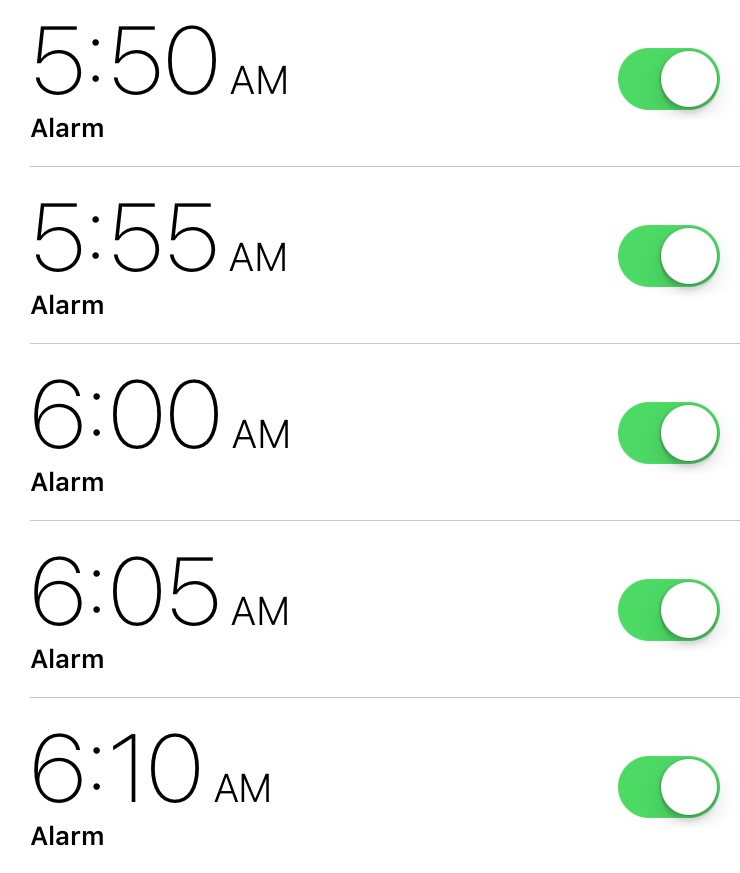
In an effort to fix the extremely prominent issue regarding the lack of sleep in many high school students, the American Academy of Pediatrics issued a policy statement urging school districts to move start times to 8:30 a.m or later for middle and high schools, so that students can get at least 8.5 hours of sleep a night. By moving the start time back an hour or so, teens will be able to get the necessary amount of sleep each night that their developing bodies in order need to be healthy.
Most high schools across the nation start at the crack of dawn. High school students are waking up anywhere from 5 AM to 6 AM in order to get to school on time, and going to bed at 10:30 PM or later. This allows students only around 7 hours to sleep each night, when they need to be getting 8-10 hours according to an article by the National Sleep Foundation. High schools across the nation simply start way too early.
Teenagers are putting a tremendous strain on their bodies and minds everyday because of the early start time of schools. Teenagers are expected to go to school everyday, participate in extracurriculars, be involved with school clubs, volunteer, do their homework, and earn good grades. But how are teenagers expected to do this if they aren’t sleeping enough each night? Their bodies are affected both mentally and physically. By moving the start time of high schools to 8:30 AM, students will be able to perform at their optimum level.
Students that don’t sleep enough are doing major harm to their bodies, The effects of sleep deprivation go further than just a bad case of the yawns and bags under the eyes. Sleep deprivation can cause serious mental and physical health issues. According to WebMD, some of these side effects include impaired memory, depressed immune system, lack of alertness, and mood swings.
All these symptoms can occur after just one sleepless night, but after an extended amount of time without sleep, the side effects can become much more serious. Depression, heart disease, and diabetes can all occur after being sleep deprived for one too many nights.
Some say that the sleep teenagers don’t have during the week is made up on the weekends, however, this is the furthest thing from true. One or two days of sleeping in after 5 days of less than adequate sleep will not “make up” for the lost sleep. Students need to be getting a consistent amount of sleep each night in order to perform at their full potential. Therefore, starting at 8:30 AM will allow students to consistently get 8-10 hours of sleep each night.
My sister, Claudia Kennedy, is a college student attending NC State, and has been through the tough and trying years of high school. College classes at NC State don’t start any earlier than 8:00 AM so it’s been awhile since she has had to wake up at 6:00 AM to go to classes. “I definitely think high schools start way too early. After being in college and having classes that start much later, it’s hard to imagine how I ever could get up so early and be prepared for class everyday,” said Kennedy. “I think it would be very beneficial for high schools to start later. I definitely would have felt much better every day if school had started later when I was there.”
In the meantime however, students need to find other ways to get some extra sleep. If students have time, right after school they should lay down for a half an hour or so to get an extra boost of energy, or simply make an conscious effort to get to bed earlier. However, the extent to which after school naps and encouragement to get in bed earlier will help the chronic sleep issue in teens is debateable. According to an article by the National Sleep Foundation, after school naps are only beneficial if the nap doesn’t last longer than an hour or so because if it lasts too long, it will throw off one’s sleep schedule, and it will be difficult to get to sleep at a normal time that night. Also, most teens are extremely busy and simply don’t have time for an after school nap.
It is extremely clear that the average high schooler isn’t getting enough sleep each night, and that is putting a heavy strain on their mental and physical health. As a community, we need to continue to push the school districts to move back the start time of schools for the betterment of teens’ health and well-being.